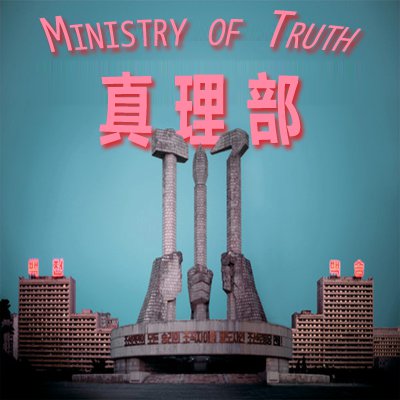The following censorship instructions, issued to the media by government authorities, have been leaked and distributed online. The name of the issuing body has been omitted to protect the source.
All major websites please prominently re-post the following articles in the headline section of your homepage:
1. China News Agency’s “HK Media Reveals Connection Between ‘Occupy Central’ Internet Defenders and CIA”
2. The Global Times’ “Who is Actually Behind ‘HK Independence’?” (June 25, 2014)
请各主要网站在首页要闻区突出转发以下文章:
1,中新网《港媒披露:“占中公投”网路卫士与美中情局渊源深》
2,环球时报《“港独”背后的黑手究竟是谁》
As of Monday, more than 700,000 Hong Kongers had participated in an unofficial referendum on electoral reform that China’s state media has called “meaningless,” and a “joke,” that would “carry serious consequences.” The ten-day poll, organized by Occupy Central With Love and Peace, asks Hong Kong residents to choose from three methods of voting in the region’s 2017 election. Occupy’s online voting portal underwent what the New York Times calls “one of the most severe cyberattack of its kind ever seen,” and the Chinese army—at the center of international hacking allegations from Washington—is a primary suspect for the blitz. Yesterday, China’s second-largest state-owned news agency published an article [Chinese] connecting Washington to the US company hosting Occupy’s voting website. A report from China Daily summarizes the article:
The US web company [CloudFlare] which runs the servers hosting the online voting organized by the “Occupy Central” campaign has links with US intelligence agencies, according to a report from Hong Kong-based Sing Tao Daily on Wednesday.
[…] In a story published by ZDNet, CloudFlare’s CEO Matthew Prince told an audience at a conference in 2012 that “We have made a lot of friends with some government agencies” after being “caught in the crossfire”.
Sing Tao Daily said CloudFlare has since found a wide spectrum of clients, including the CIA, Wikileaks and hacker group “Anonymous”. Two weeks ago, CloudFlare began to offer free and anonymous protection to “vulnerable public interest Web properties” around the world to fend off DDoS (distributed denial-of-service) attacks. Its “partners”, however, are largely limited to US-based organizations.
The partners highlighted in the news report included Washington-based Center for Democracy & Technology, and Radio Free Asia’s Open Technology Fund. Both of which, according to the paper, have close ties with the US establishment. [Source]
The unofficial poll will end just as protesters are preparing to take to the streets for an annual rally marking the establishment of the Hong Kong Special Administrative Region. This year’s march is predicted to attract more than half-a-million people, draw protesters from across the strait, and become the biggest July 1st march since the 1997 handover of the region.
Elsewhere in China’s state media, allegations of US government support for dissent in Hong Kong have recently been made. An article published yesterday by Party mouthpiece the Global Times published “Who is Actually Behind ‘Hong Kong Independence’?” (“港独”背后的黑手究竟是谁), which accuses the US of encouraging separatism in the semi-autonomous region. The South China Morning Post summarizes the Global Times’ article:
An opinion piece in the state-run Global Times yesterday said the US had given its support to the city’s separatist forces.
“Hong Kong is going to implement universal suffrage in 2017. The US is trying to take advantage of this chance to push for the forces of Hong Kong separatism and to bring China trouble,” the article said.
“Even if the US plan to push for independence fails, it could still affect China if chaos hits Hong Kong.”
The article further suggested that the US had been sending large amounts of intelligence as a way to meddle in the city’s political affairs. [Source]
As worry has been mountain in Hong Kong over Beijing’s expanding influence in Hong Kong and control over the 2017 elections, the CCP has been consistently warning of the threats of “Western calls for political reform.” Read more on Hong Kong democracy or U.S.-China relations via CDT.
CDT collects directives from a variety of sources and checks them against official Chinese media reports to confirm their implementation.
Since directives are sometimes communicated orally to journalists and editors, who then leak them online, the wording published here may not be exact. The date given may indicate when the directive was leaked, rather than when it was issued. CDT does its utmost to verify dates and wording, but also takes precautions to protect the source.









